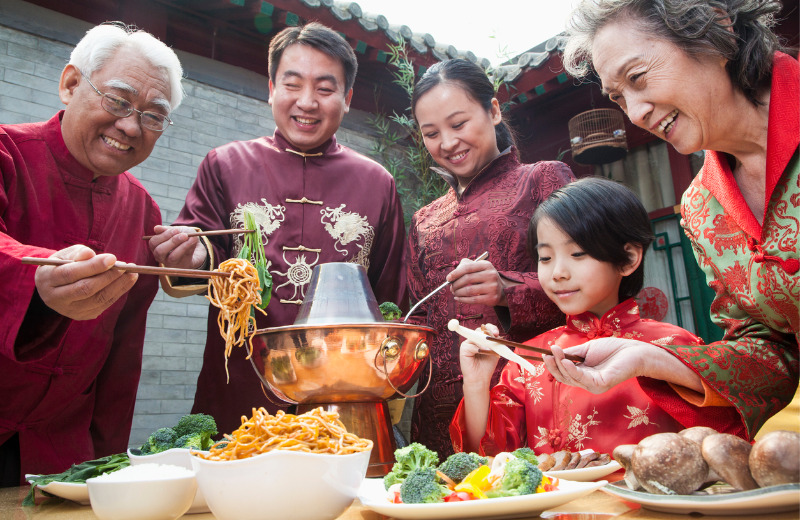
In the Western world, we often think about food in terms of calories, protein, carbohydrates, and vitamins. But in China, food is viewed through a different lens.
Rooted in the rich tapestry of traditional Chinese medicine, there is an ancient understanding that specific foods, herbs, and spices not only nourish the body but also the mind. For thousands of years, certain foods have been celebrated for their ability to support brain health and enhance cognitive performance. Let’s delve into a few examples.
Ginkgo Biloba: Native to China, this unique tree produces seeds that have been used in traditional medicine for centuries. Scientists are now exploring Ginkgo Biloba for its potential benefits in improving memory and cognitive function.
Some studies suggest that it may help reduce symptoms of Alzheimer’s and other age-related cognitive disorders. However, it’s important to note that raw Ginkgo Biloba seeds can be toxic and should only be consumed after appropriate preparation.
Green Tea: Known as “lu cha” in China, green tea is not only a beverage but a significant part of Chinese culture. Green tea is packed with antioxidants, specifically a type of polyphenols called catechins. These powerful compounds have been shown to protect the brain, possibly helping to delay cognitive decline.
Turmeric: Though often associated with Indian cuisine, turmeric is also frequently used in traditional Chinese medicine. The active ingredient in turmeric, curcumin, is known for its anti-inflammatory and antioxidant properties. Research indicates that curcumin might improve memory and mood in people with mild, age-related memory loss.
Ginseng: Ginseng, particularly Panax or Asian ginseng, has a long history of use in Chinese medicine for its restorative properties. Studies show that ginseng may improve mental function, enhance memory and behavior in Alzheimer’s disease, and offer neuroprotection.
Goji Berries: Known as “gou qi zi” in Chinese, goji berries are highly valued for their ability to nourish the Yin, particularly in the liver and kidney. According to Chinese medicine, the liver and kidney are connected to brain health. Modern science has found that goji berries are rich in antioxidants, which can protect the brain from oxidative damage.
Black Sesame Seeds: In traditional Chinese medicine, black sesame seeds are said to support the Yin and blood, benefit the liver, and nourish the brain. They are a good source of several nutrients vital for your brain, including protein, omega-6 fats, and certain antioxidants.
Remember, while these foods have potential benefits, they’re not a magic bullet for brain health. It’s essential to incorporate them into a balanced diet and a healthy lifestyle that includes regular exercise, good sleep, and mental stimulation.
It’s also worth noting that individual responses to these foods can vary, and they can have side effects, especially if taken in excess or in supplement form. Always consult a healthcare professional before starting a new supplement regimen.
All that said, traditional Chinese wisdom offers a valuable perspective on brain health—one that goes beyond nutrients to encompass a holistic understanding of how food can support not just our bodies, but our minds too.
Before you go! Did you check out our short but fact-filled book, Brain Sharpeners? It gives the lowdown on 48 different brain-friendly foods, and is just a click away on Amazon.
